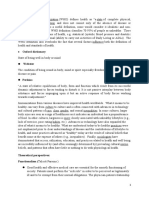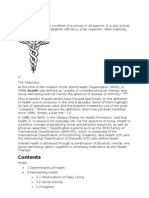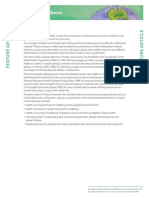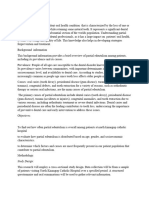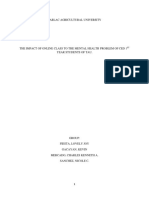0% found this document useful (0 votes)
14 views3 pagesBehavioralScienceandPublicHealth StudyGuide
The document discusses the role of behavioral science in health and medicine, emphasizing its applications in promoting healthy behaviors, preventing diseases, and managing chronic conditions. It highlights the importance of social determinants of health and the integration of social and behavioral aspects into public health practices, moving beyond traditional biomedical models. Additionally, it explores the scope and theoretical approaches of medical anthropology, focusing on the interplay of culture, society, and biology in understanding health and illness.
Uploaded by
b48906980Copyright
© © All Rights Reserved
We take content rights seriously. If you suspect this is your content, claim it here.
Available Formats
Download as PDF, TXT or read online on Scribd
0% found this document useful (0 votes)
14 views3 pagesBehavioralScienceandPublicHealth StudyGuide
The document discusses the role of behavioral science in health and medicine, emphasizing its applications in promoting healthy behaviors, preventing diseases, and managing chronic conditions. It highlights the importance of social determinants of health and the integration of social and behavioral aspects into public health practices, moving beyond traditional biomedical models. Additionally, it explores the scope and theoretical approaches of medical anthropology, focusing on the interplay of culture, society, and biology in understanding health and illness.
Uploaded by
b48906980Copyright
© © All Rights Reserved
We take content rights seriously. If you suspect this is your content, claim it here.
Available Formats
Download as PDF, TXT or read online on Scribd
/ 3



















